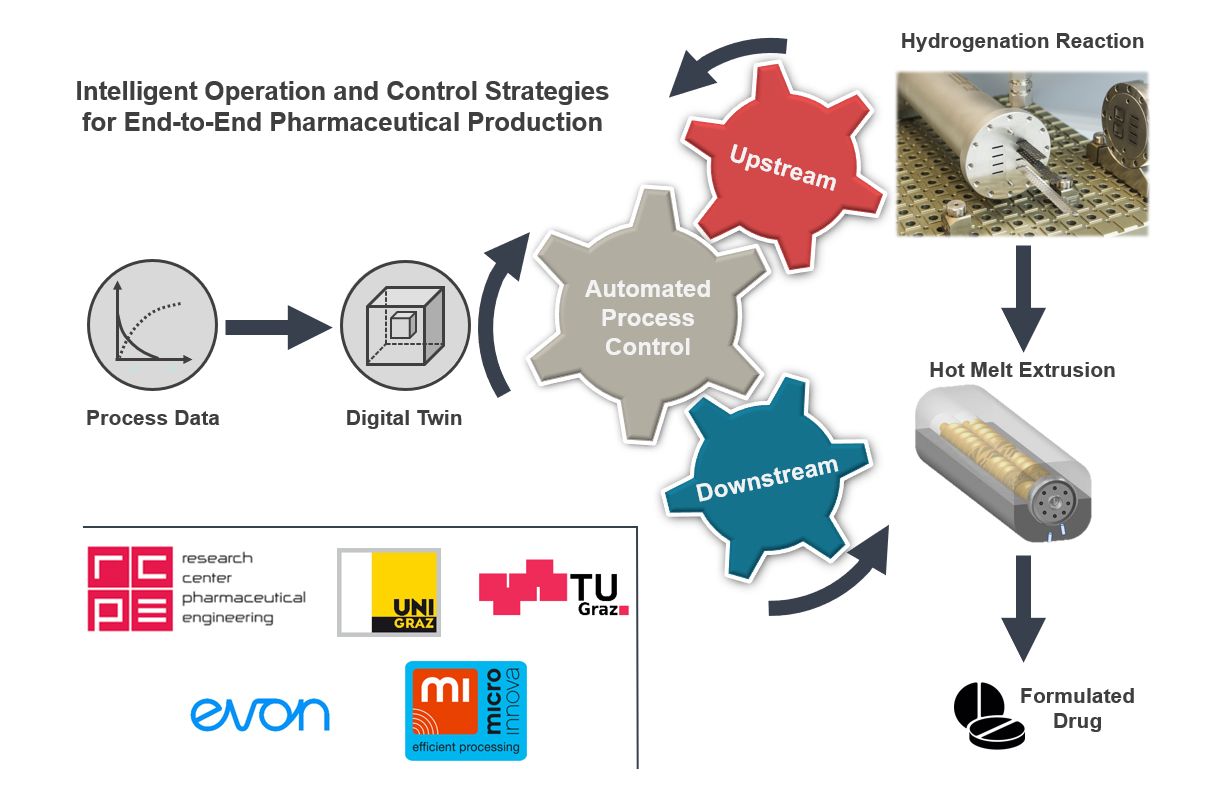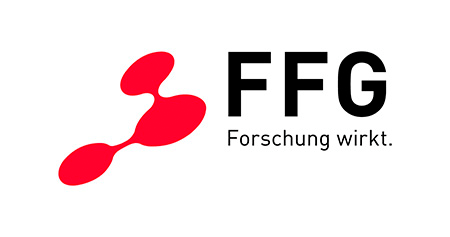Introduction
Following the success of the Austrian Research Promotion Agency (FFG) funded project SynthesisControl (2019-2020), the Research Center Pharmaceutical Engineering GmbH (RCPE) has been awarded an additional two year FFG project termed „PharmComplete“ (0.84 Mio €, 2022-2023). Project partners in this initiative in addition to RCPE are the Institute of Chemistry at University of Graz (Prof. Kappe), the Institute of Automation and Control at Graz University of Technology (Prof. Horn), evon GmbH and Microinnova Engineering GmbH.
Research Objectives
Supported by regulatory initiatives and scientific achievements and driven by the desire to reduce costs for medicine, a shift towards more efficient and controlled processes is taking place in the pharmaceutical industry. Process analytical technologies, continuous manufacturing and advanced process control strategies are central elements. Although especially in the field of solid dosage manufacturing plug and play lines are available from different suppliers, the change to completely monitored and automated processes is taking place slowly. Process data is still mainly used for manual operation decisions and out of specification product is discharged. Model-based predictive control is rarely applied in an industrial environment. Labour-intensive quality control at the end of the line, variable product quality and ineffective utilization of resources is common. The active pharmaceutical ingredients (API) and the drug product are produced separately far away from each other, the API often in emerging countries. This leads to climate changing emissions and huge time spans until medicine reaches the market. As shown during the Corona crisis, the dependence of industrialized countries on remotely manufactured APIs can lead to drug product shortages.
It is goal of PharmComplete to develop a digital twin for an integrated pharmaceutical manufacturing line from API synthesis over downstream processing towards tableting. Process models will be developed for all unit operations or models existing from prior projects will be adapted and parameterized for the specific conditions and materials. Therefore, machine learning approaches will be used. A focus here will be in model simplification in order to enable easier utilization in an industrial environment. The digital twin and all sensors and actuators will be implemented in an automation platform. As a result, both process simulation and control can be executed via the digital twin. Model-based control strategies will be applied for all process steps. The process combined from continuous and batch steps will be automated and optimized. In addition to digitalization, the process will be much simplified compared to the established route.
This will be the last step towards complete automation of the entire pharmaceutical production chain. Integration at one single site allows for flexible production even during crisis as well as the drastic reduction of climate changing emissions and an optimized utilization of resources. Intelligent process control based on process information generated from real-time process data enables robust processing, reduction of waste and constant high product quality assured during the production campaign.
Flow Chemistry/PAT Platform
The flow chemistry/PAT systems used for this project will be largely based on the INFRA FLOW platform available at University of Graz. Key component of this infrastructure is a high-performance modular flow chemistry platform from Ehrfeld Mikrotechnik (including a Miprowa reactor) that allows full process automation and intensified flow processing under a wide range of different reaction conditions. This platform is directly linked to various in-line (IR, NMR) and at-line (UHPLC) reaction monitoring tools, or can be used along other flow chemistry equipment available within CC FLOW in order to maximize synergistic effects.
Publications
Dynamic Experiments in Flow Accelerate Reaction Network Definition in a Complex Hydrogenation Using Catalytic Static Mixers
S. Martinuzzi, M. Tranninger, P. Sagmeister, M. Horn, J. D. Williams, C. O. Kappe, React. Chem. Eng. 2023, 8, in press. DOI: 10.1039/D3RE00451A.


